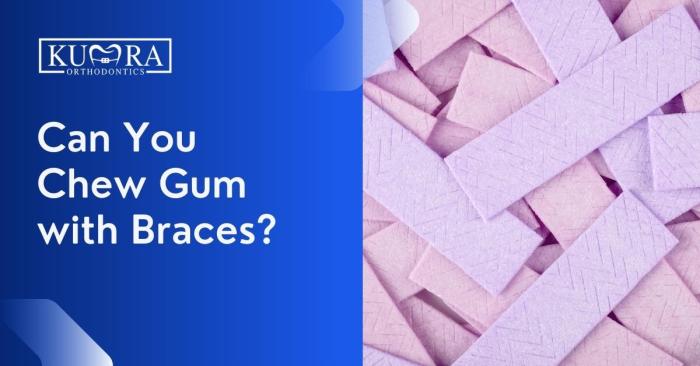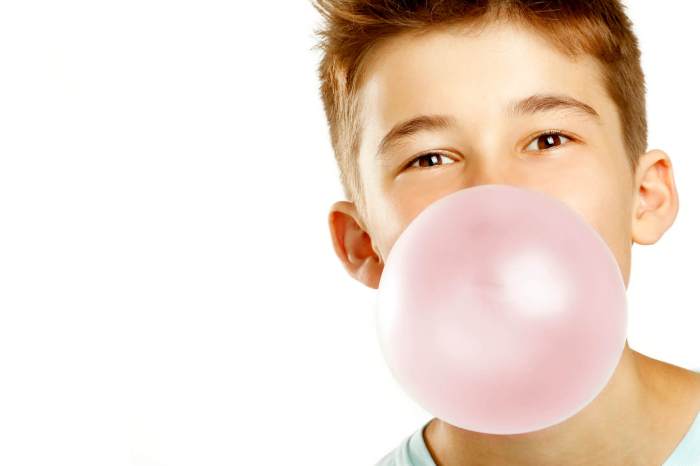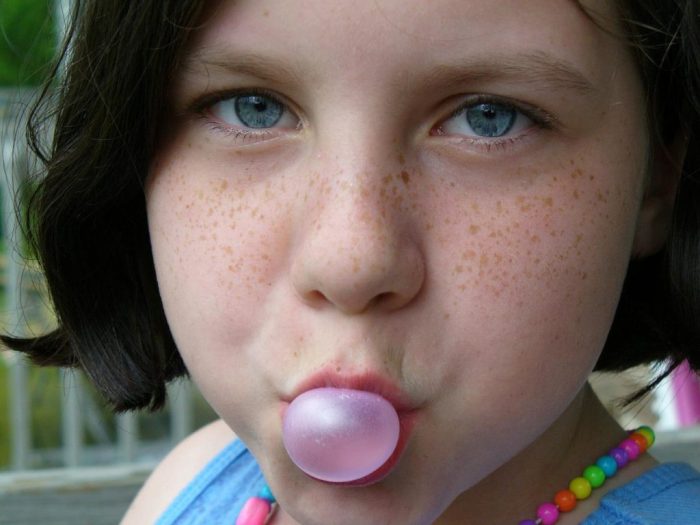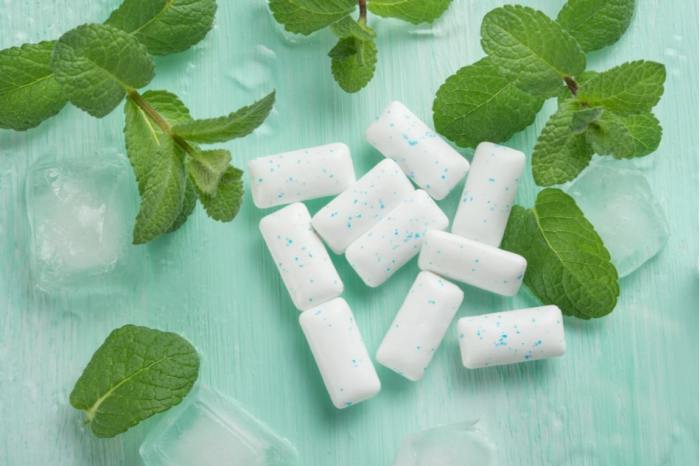Can you chew gum during the mcat – Chewing gum during the MCAT exam is a topic that has sparked discussions and raised concerns among test-takers. This comprehensive guide delves into the regulations, physiological effects, alternative stress relief methods, and ethical considerations surrounding gum chewing during the MCAT, providing a clear understanding of the issue and its implications.
The Medical College Admission Test (MCAT) is a standardized exam that plays a crucial role in medical school admissions. The exam is designed to assess an individual’s knowledge and skills in various scientific disciplines, including biology, chemistry, and physics. As a high-stakes exam, the MCAT requires candidates to perform at their peak, and any potential distractions or hindrances during the exam can have a significant impact on their performance.
General Guidelines

The Medical College Admission Test (MCAT) is a standardized exam that assesses the academic preparedness of aspiring medical students. To ensure fairness and academic integrity, the exam is administered under strict regulations, which include a prohibition on chewing gum during the exam.
Rationale for Prohibition
Chewing gum is prohibited during the MCAT for several reasons. First, it creates a distraction for both the test-taker and those around them. The sound of chewing and the movement of the mouth can be distracting and interfere with concentration.
Additionally, chewing gum can introduce foreign substances into the testing environment. This is particularly concerning in light of the COVID-19 pandemic, as chewing gum could potentially spread respiratory droplets.
Potential Consequences
Chewing gum during the MCAT is a violation of the exam regulations. Consequences for violating these regulations can include:
- Verbal warning
- Confiscation of the gum
- Removal from the testing room
- Disqualification from the exam
It is therefore strongly advised to refrain from chewing gum during the MCAT. By adhering to the exam regulations, test-takers can ensure a fair and distraction-free testing environment for themselves and others.
Physiological Effects

Chewing gum has been shown to have various physiological effects on cognitive performance, including improvements in focus, alertness, and memory.
The act of chewing stimulates the release of neurotransmitters such as dopamine and serotonin, which are involved in attention, mood, and reward. Additionally, chewing gum increases blood flow to the brain, providing more oxygen and nutrients to the brain cells.
Focus and Alertness
Several studies have demonstrated that chewing gum can enhance focus and alertness. In one study, participants who chewed gum during a monotonous task performed better and reported feeling more alert than those who did not chew gum.
Memory
Chewing gum has also been found to improve memory. In a study published in the journal Appetite, participants who chewed gum while studying for a test performed better on the test than those who did not chew gum.
Alternative Stress Relief Methods

While chewing gum is a common stress relief technique, it is prohibited during the MCAT. Fortunately, there are several alternative stress relief methods that can be employed to help reduce anxiety and improve focus during the exam.
Breathing Exercises
Deep breathing exercises can help to calm the nervous system and reduce stress levels. One simple technique is to inhale slowly and deeply through the nose for a count of four, hold the breath for a count of seven, and then exhale slowly through the mouth for a count of eight.
Meditation Techniques
Meditation can help to clear the mind and focus the attention. A simple meditation technique is to sit in a comfortable position, close the eyes, and focus on the breath. Allow any thoughts that arise to pass through the mind without judgment.
Visualization Exercises
Visualization exercises can help to create a sense of calm and reduce anxiety. One technique is to imagine a peaceful scene, such as a beach or a forest. Focus on the details of the scene, such as the sounds, smells, and sights.
Case Studies and Anecdotes

Anecdotal evidence and case studies offer valuable insights into the potential consequences of chewing gum during the MCAT. While some individuals may report positive experiences, others have faced negative outcomes that highlight the importance of considering individual circumstances and preferences.
Negative Experiences
- Cognitive Impairment:A study by the University of North Carolina found that chewing gum during a cognitive task impaired performance on measures of attention and memory. The researchers suggested that the chewing motion may compete with cognitive processes, reducing the brain’s capacity for focused thought.
- Increased Stress:For some individuals, the act of chewing gum can increase stress and anxiety levels. The repetitive motion and the sensation of having something in the mouth can become distracting and interfere with concentration.
- Jaw Pain:Excessive gum chewing can lead to jaw pain, muscle fatigue, and temporomandibular joint (TMJ) disorders. These conditions can cause discomfort and difficulty concentrating.
Positive Experiences
In contrast to the negative experiences, some test-takers have reported positive outcomes from chewing gum during the MCAT. These individuals often cite the following benefits:
- Reduced Stress:For some, chewing gum can provide a calming and soothing effect, helping to reduce stress levels and improve focus.
- Increased Alertness:The chewing motion can stimulate the release of endorphins, which have mood-boosting and alertness-enhancing effects.
- Improved Concentration:The repetitive nature of chewing gum can provide a sense of rhythm and structure, which some individuals find helpful for maintaining concentration.
Health and Hygiene Considerations
Chewing gum during the MCAT can pose certain health and hygiene concerns that test-takers should be aware of. Maintaining proper oral hygiene and minimizing distractions are crucial for optimal performance during the exam.
Maintaining Oral Health
- Sugar-free gum:Opt for sugar-free gum to avoid potential tooth decay.
- Limit chewing time:Prolonged gum chewing can lead to jaw fatigue and discomfort.
- Avoid sticky gum:Sticky gum can adhere to dental work and cause discomfort.
Minimizing Distractions, Can you chew gum during the mcat
- Noise:Gum chewing can create audible noises that may distract both the test-taker and neighboring candidates.
- Concentration:Excessive gum chewing can become a distraction and interfere with focus.
- Etiquette:Chewing gum in a formal testing environment may be considered impolite or unprofessional.
To maintain oral health and minimize distractions, it is recommended to limit gum chewing during the MCAT. If chewing gum is necessary, choose sugar-free options, chew for short durations, and avoid sticky or noisy gum.
Cultural and Personal Perspectives
The use of gum during exams is a topic that has elicited varying cultural and personal perspectives. In some cultures, chewing gum is seen as a sign of disrespect or distraction, while in others, it is considered a way to relieve stress and improve focus.
Cultural Factors
Cultural beliefs and norms can significantly influence an individual’s decision to chew gum during the MCAT. For example, in some Asian cultures, it is considered impolite to chew gum in public, and this may extend to academic settings. Conversely, in Western cultures, chewing gum is often seen as a way to relieve tension and boredom.
Personal Factors
Personal preferences and habits also play a role in whether or not an individual chews gum during the MCAT. Some people find that chewing gum helps them to focus and concentrate, while others find it distracting. Additionally, some individuals may have medical conditions that make it difficult or uncomfortable to chew gum.Ultimately,
the decision of whether or not to chew gum during the MCAT is a personal one that should be based on the individual’s cultural background, personal preferences, and any relevant health considerations.
Ethical Considerations

Chewing gum during the MCAT raises ethical concerns that warrant examination. The practice could potentially create an unfair advantage or disadvantage for test-takers, impacting the integrity and fairness of the exam.
Responsibility of Test-Takers
Test-takers have an ethical responsibility to maintain fairness and integrity during the MCAT. Chewing gum could potentially provide an unfair advantage if it helps to reduce stress or improve focus, giving certain individuals an edge over others who may not have access to or choose not to chew gum.
Conversely, chewing gum could also create a disadvantage if it becomes a distraction or leads to discomfort or other issues that hinder performance. In such cases, test-takers may be placed at an unfair disadvantage compared to those who do not experience these negative effects.
To ensure fairness and equity, it is crucial for test-takers to carefully consider the potential ethical implications of chewing gum during the MCAT and act in a manner that maintains the integrity of the exam.
Legal and Regulatory Aspects: Can You Chew Gum During The Mcat
The Medical College Admission Test (MCAT) is a standardized exam administered by the Association of American Medical Colleges (AAMC). As with any standardized exam, there are specific rules and regulations that govern its conduct. These rules include guidelines on what is and is not allowed during the exam, including the use of gum.The
AAMC’s policies prohibit the use of gum during the MCAT. This policy is in place to ensure fairness and equity for all test-takers. Chewing gum can be a distraction to other test-takers and can also be used to conceal unauthorized materials.Violating
the AAMC’s policies on gum use can have serious consequences. Test-takers who are caught chewing gum during the MCAT may be subject to disciplinary action, including having their scores invalidated or being banned from taking the exam in the future.Proctors
and exam administrators are responsible for enforcing the AAMC’s policies on gum use. They are authorized to confiscate gum from test-takers and to report any violations to the AAMC.
In addition to the AAMC’s policies, some testing centers may have their own regulations regarding gum use. Test-takers should be sure to familiarize themselves with the policies of the testing center where they will be taking the MCAT.
Clarifying Questions
Is it allowed to chew gum during the MCAT?
No, chewing gum is not permitted during the MCAT exam. According to the official MCAT guidelines, food and drinks, including gum, are not allowed in the testing room.
What are the consequences of chewing gum during the MCAT?
Chewing gum during the MCAT is a violation of the exam regulations and may result in penalties, including being asked to leave the testing room or having your exam score invalidated.
Are there any alternative stress relief methods that can be used during the MCAT?
Yes, there are several alternative stress relief methods that can be used during the MCAT, such as deep breathing exercises, meditation, or visualization techniques. These methods can help reduce anxiety and improve focus without violating the exam regulations.